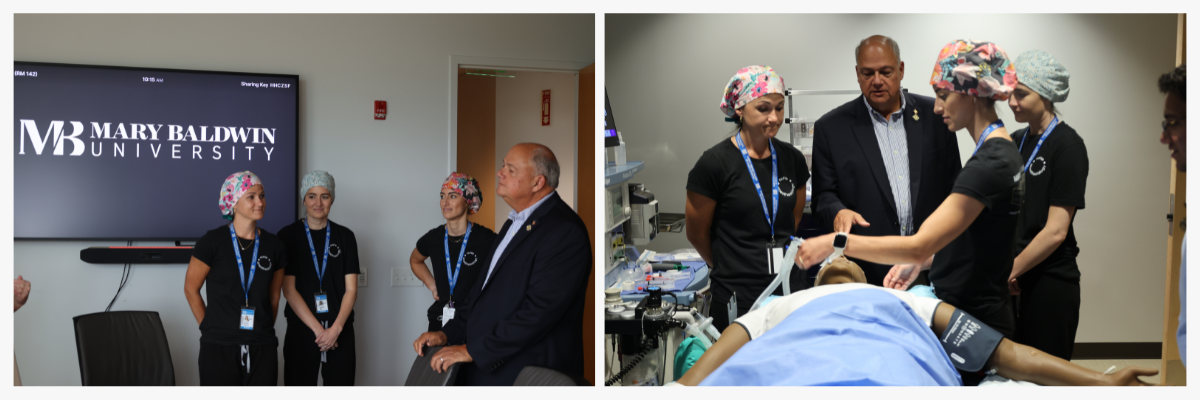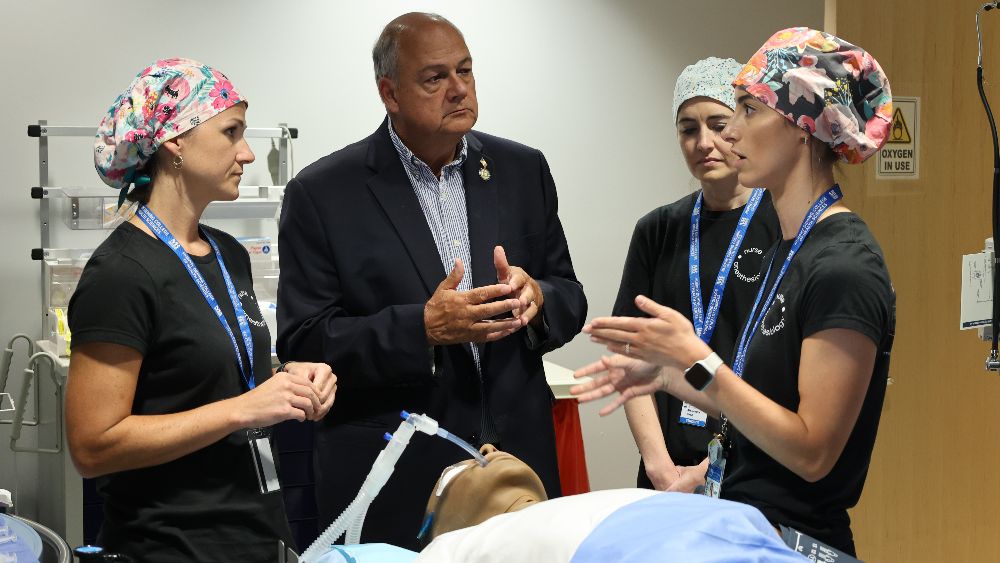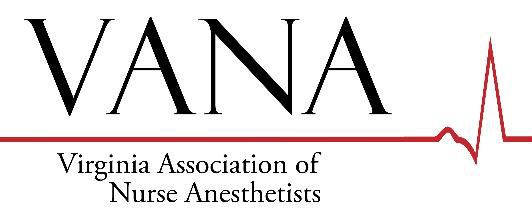Mary Baldwin University Legislative Visit
Mary Baldwin University nurse anesthesiology program hosts Delegate Chris Runion and legislative staff to learn more about CRNAs

In late July, the nurse anesthesiology program at the Mary Baldwin University Murphy Deming College of Health Sciences hosted Del. Chris Runion and legislative staff to learn about the education required to become a Certified Registered Nurse Anesthetist (CRNA).
Del. Runion and staff from Del. Katrina Callsen and Del. Ronnie Campbell’s offices joined the President of Mary Baldwin University Dr. Jeff Stein, Dean of Murphy Deming College of Health Sciences Dr. Todd Telemeco, Director of MBU’s nurse anesthesiology program Dr. Jennifer McPherson, Curriculum Director of MBU’s nurse anesthesiology program Dr. Derek Owens, and MBU nurse anesthesiology faculty member Barbara Acord, to learn more about the process of becoming a CRNA. Also on hand to provide first-hand experience of what a CRNA program is like were MBU nurse anesthesia residents Jenna Conway, Danielle Donovan and Alexandra Hogg.
The visit walked guests through the extensive education and training that CRNAs are required to undertake to become eligible for board exams. CRNAs are trained to deliver anesthesia across the entire human lifespan and practice in every healthcare setting. Prior to admission to a nurse anesthesiology program, applicants must have obtained a Bachelor of Science in Nursing and have no less than one-year of experience working in an intensive care unit. The intensive three-year doctoral training program at MBU prepares CRNAs to make difficult decisions that could save someone’s life.
Among the topics discussed during the legislative visit were CRNA scope of practice, including the current restrictions that prevent CRNAs from practicing to the full extent of their education and training in Virginia. Currently, Virginia is one of seven states that still requires CRNAs to be supervised by a physician in order to practice.
Guests also learned how CRNAs provide 80% of anesthesia administered in rural environments and how to increase access to anesthesia care in rural areas. The nurse anesthesiology residents simulated a difficult anesthetic induction for guests to view. The residents were able to intubate the simulation models and show the complexities of the job of a CRNA.
Informational opportunities like this are critical to informing policymakers about the extensive education CRNAs receive and the safe, high-quality, life-saving anesthesia care that CRNAs provide across Virginia. If you are interested in learning more about anesthesia care in Virginia, or would be interested in visiting a simulation lab, please contact Meredith Joyner at [email protected].


